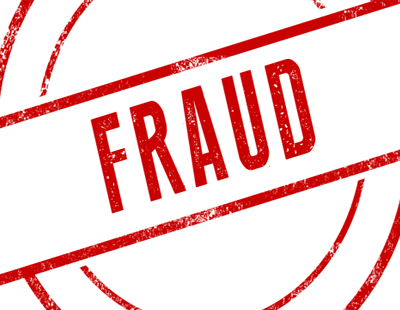With ITV's Our House currently gripping millions of TV viewers, property experts have outlined how property fraud - which plays a central role in the story - can successfully be avoided.
The programme, based on Louise Candlish's best-selling book of the same name, tells the story of a woman who returns home one day to find that strangers are moving into her house after she supposedly sold it.
It might sound completely far-fetched, but property experts have warned that the drama, starring Tuppence Middleton and Line of Duty's Martin Compston, actually captures a terrifying reality that is hitting increasing numbers of homeowners.
According to Colum Smith, an expert in property fraud with law firm Taylor Rose MW, Our House shines a light on a growing problem 'because property fraud is a reality impacting rising numbers of people every year'.
"Government estimates for the money these criminals steal are nowhere near the true scale of the losses we are seeing in the industry. It’s many, many millions of pounds more which fraudsters are stealing," he said.
“These property cowboys are getting increasingly sophisticated and coming up with more and more elaborate ways to pull off their crimes that destroy lives.”
These sentiments are echoed by Jack Roberts, the co-founder of SlothMove, which helps home movers quickly and safely update their address across hundreds of providers when moving house.
“Property fraud is becoming an increasingly complex problem exacerbated by the pandemic, which has seen more services shift online which created new opportunities for criminals," he said. "Homeowners need to be vigilant now more than ever before. If something looks odd, challenge it. Fraudsters depend on you not asking questions and trusting what you see wholesale. Use a local qualified solicitor or licenced conveyancer with local knowledge. Look for a solicitors practice that has anti-fraud systems that you can see and understand. Fraud is a growing risk.”
In a further bid to help, Jonathan Rolande from House Buy Fast has provided a range of tips to help reduce the chances of falling victim to property fraud.
“You can start to reduce the risk by using professionals. Ensure your agent is legitimate by checking them out on an Ombudsman website, all agents must be a member of one of the schemes," he said.
"Do this whether you are buying or selling. Your solicitor should be chosen thanks to good, professional service, not just because they are cheap. They will be your most important line of defence against fraudsters. If you can, meet the buyer or seller of the house personally. It’s often easy to spot suspicious behaviour in person.
“Get to know the neighbours. It's useful to know who’s next door and they might know something useful, for example, that the property is rented or that the owner has recently died."
He added: “Never trust an email or letter that asks for money. Mail can be intercepted and bank numbers changed. Always call on a trusted number to check that the account number you’re paying is genuine.”
He continued: “Also check if your property is registered with the Land Registry. There is a £3 charge. If you find any information on the register is incorrect, you must let the Land Registry know. Properties most likely to be unregistered are those that haven’t been mortgaged or sold since 1990.
“If you think you might be at risk of property fraud, the first thing you should do is to sign up to the Land Registry Property Alert service.
“Alerts are sent to you via email when official searches and applications are received against the property you want monitored.
“So, for example, if someone tries to make changes to a property you have registered – such as applying to change the registered owner of your property or if someone makes an application to register a mortgage on your property – a notification is sent to you via email."
It won’t automatically block any changes to the register, Rolande says, but it will tell you what is happening so you can take appropriate action if necessary.
“It’s a good service for landlords too, as you can monitor up to ten properties at one time free of charge," he said. “More than one person can monitor a property at the same time, which is useful if you and your siblings are looking after a property for parents in care."
He says people can also safeguard their property further by applying to put a restriction on the title deeds of your property.
“There are many different types of scams that people fall victim to when trying to sell their home and in various forms around selling a home," he said.
“One of the most common is email hacking which occurs when fraudsters intercept emails between the buyer and their solicitor and alter the bank details so the money is sent into their own accounts. There are countless ‘get-rich-quick’ investment scams that involve getting you to hand over money on the promise of dubious high returns."
He went on: “Be very wary of mail solicitations claiming great returns, no matter how good they look. If a deal seems too good to be true, then it probably is.
“Never make investments without thorough research. Find out where the land is and view it before parting with your money. Ask the locals questions about its history. Discover whether planning permission has been applied for or granted. Always make sure you keep copies of all paperwork about the transactions and the course, as well as notes of any phone conversations.”








.png)










Join the conversation
Be the first to comment (please use the comment box below)
Please login to comment